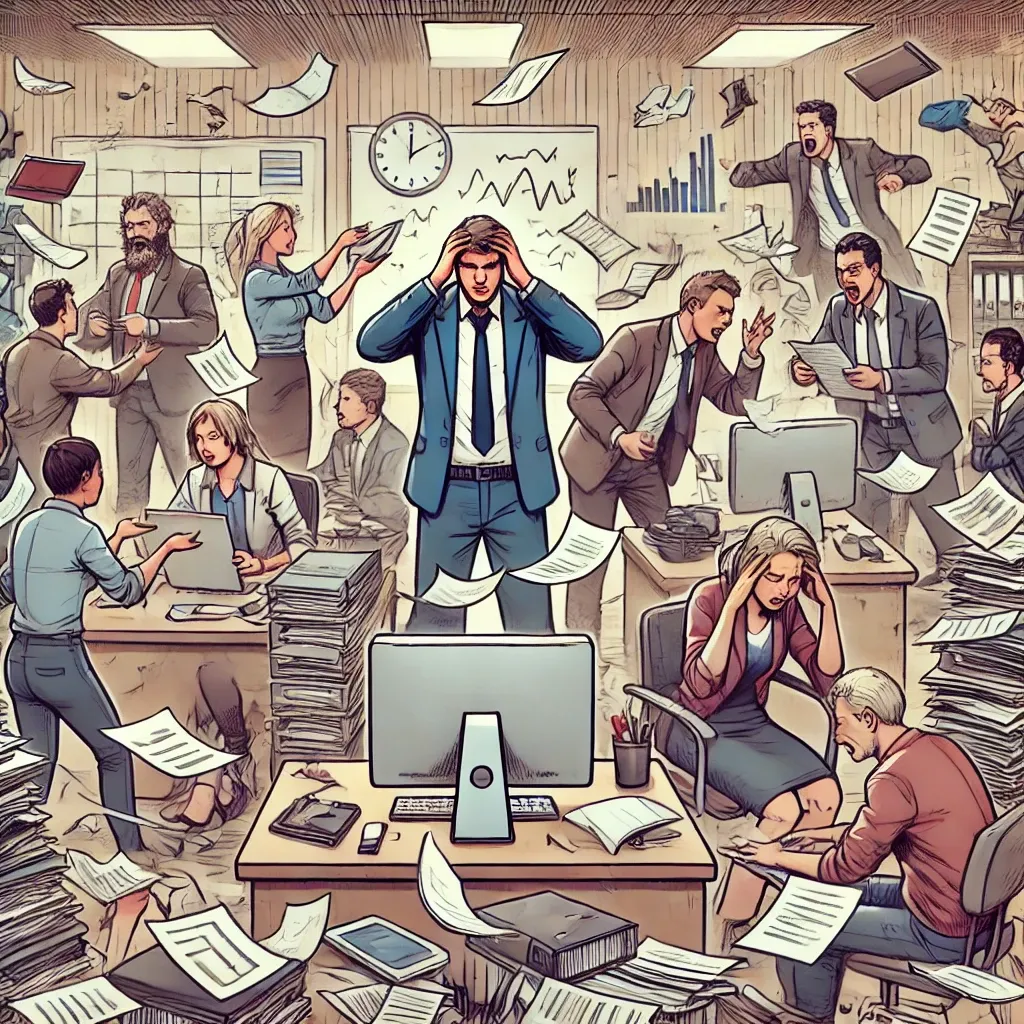Microsoft's Hedge Against OpenAI

Not much new in here, ostensibly using the news of three key departures (or leaves of absence) from OpenAI in recent weeks to realize, as I noted a few days ago, that remarkably, 9 of the 11 original core team of the startup is now not currently working at the startup. The highest-profile startup in the world. As I wrote:
So of those 11 named individuals, only 2 still are currently working at OpenAI (again, with Brockman on sabbatical – we'll see).
That's remarkable – in a bad way – for a company as important as OpenAI has grown to become. But the reason why this has come to pass would seem to be right there in that original blog post. This is just not the same company that it was at the outset. And sure, that's true of most companies which must evolve along the way. But most companies also don't start out by planting such idealistic and stringent flags in the ground. It has come back to bite them. Sure, OpenAI is still, in a way, a non-profit. In that it hasn't yet turned a profit.
That founding team signed up for a mission that not only had nothing to do with the business, it was opposed to having anything to do with the business. And those early years were undoubtedly hard, perhaps as a result, which probably has something to do with 5 of those 11 leaving in 2017 or 2018. (Musk was a different story, of course.) But the 6 that remained (minus Musk but with Karpathy coming back) would seem to point to something else. The fact that 4 of those 6 have left in the last few months says... something.
This FT piece still doesn't really do the reporting as to why we're seeing the recent exodus. I speculated on a few obvious topics, but no one has nailed this down yet. Instead, their article focuses on how Microsoft has been distancing themselves over time, in action, if nothing else. Something I focused on back in May:
Microsoft has given OpenAI something to the tune of $13B, and counting, to help create ChatGPT and their various other efforts. OpenAI, in turn, has given Microsoft the right to use their technology to underpin and upsell their own customers on AI. When the shit hit the fan at OpenAI leading to the ouster of Sam Altman, Microsoft was the key partner who stepped in to put Altman back in place. At the same time, this pointed to some real risk in their investment in what was still structured as a non-profit company. And so it seemed like Microsoft started making moves to hedge their bet, both investing in other AI startups, but also totally not acquiring one. That deal put in place a new leadership team for Microsoft’s AI efforts, notably in the consumer space, potentially going head-to-head with their partner in OpenAI. Meanwhile, OpenAI was cutting their own deals with various other entities on the side, leading up to this apparent Apple deal which would presumably make it even harder for Microsoft to compete in consumer AI. But hey, at least Microsoft would have another cloud customer in the form of… Apple, by way of ChatGPT. Unless, of course, Apple insists on running OpenAI tech on their own servers, if that’s even possible. It’s all just insanely incestuous and messy and getting messier each day. Might we see Apple invest in OpenAI soon? I mean, definitely don’t be surprised!
Anyway, all of this underscores the whispers you can’t help but hear if you follow any of this: that OpenAI and Microsoft are increasingly at odds with one another. Yes, they’ll still say the right things in public, and even make the occasional public appearance in support of one another. But there are billions of reasons to do that, literally. At the same time, the more subtle signals point to partners at odds. And a rift growing between the two.
All of that leads to the obvious question: if OpenAI is about to bite the hand that feeds them? And what, if anything, Microsoft can do if bitten?
I still can't help but wonder if the whole Apple-in-the-OpenAI-boardroom thing wasn't related to an eventual investment from Apple (tied, of course, to their partnership announced at WWDC). And if Microsoft didn't scuttle that – and also remove itself from that very board room, which had the benefit of hopefully turning down the regulatory scrutiny on them – a bit. But that's pure speculation.
Less speculative is the growing tension between OpenAI and Microsoft. In particular about the internal efforts at the latter being led by Mustafa Suleyman. FT did manage to get a couple on-the-record quotes on that general topic – less in what they say and more in how they say it:
“[OpenAI] remains a strong partner and we are pretty confident they have solved their internal issues,” says Eric Boyd, corporate vice-president of Microsoft’s Azure AI cloud computing platform, who manages the relationship with OpenAI. “At least to me, there has not been a particular strategic shift as a result of what happened.”
"At least to me" is just a great equivocation. Why not, "don't look at me if the opposite is true!" And:
Brad Lightcap, OpenAI’s chief operating officer, says: “While we have evolved from a small start-up to a company serving the world’s largest companies, Microsoft remains an important partner.” Its funds and infrastructure have helped “enable OpenAI to innovate and deliver groundbreaking research and products,” he adds.
That's most interesting in who the quote is from, which is not Sam Altman. One can imagine a conversation along the lines of "Did Satya give a quote? No? Then I'm not giving a quote. You deal with it, Brad."
As always more interesting is the source who asks not to be named:
A sales executive at Microsoft says it is just smart business. “The other partnerships are a safeguard, not just if OpenAI goes down but in case a new start-up comes up with something better,” the person says. “What happens if Mistral, Cohere or Microsoft bring out a better model, what does Sam have? Huge consumer reach, good researchers, but if the best model isn’t GPT4 then who cares?”
That's another important angle in all of this. It's one thing if OpenAI blows up (in the bad way), it's another if something better comes along. There's not exactly signs that this is happening right now, but there are tangential signs around actually "open" models and how fast all of these models are reaching parity with one another. And that will put an emphasis fully on products, not performance, at some point.
Anyway, I guess my point is that you should subscribe to Spyglass to read The Financial Times days or months ahead of time 😜.





